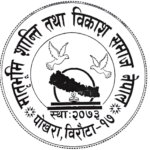- +9769497537
- info@mpdsnepalvolunteering.org
- 4BIRAUTA-17, RTO Road , Pokhara ,Kaski ,Gandaki Province, Nepal

Menu


Access to proper sanitation facilities is a fundamental human right, yet many Dalit communities in our target area lack adequate toilets and hygienic sanitation practices. Our NGO, is dedicated to improving the health and well-being of Dalit communities by implementing projects that promote access to clean toilets and sanitation facilities. This project proposal focuses on addressing the sanitation challenges faced by Dalit communities through the construction of toilets and the promotion of hygiene practices.
III. Project Activities:
1. Toilet Construction:
– Conduct a needs assessment to identify households in Dalit communities lacking access to toilet facilities.
– Construct gender-sensitive and accessible toilet units, prioritizing households with vulnerable individuals such as women, children, and elderly.
2. Hygiene Promotion:
– Facilitate hygiene education sessions on handwashing, waste management, and menstrual hygiene for community members.
– Distribute hygiene kits containing essential items such as soap, menstrual hygiene products, and cleaning supplies to promote good hygiene practices.
3. Community Engagement:
– Form community sanitation committees composed of local stakeholders to oversee project implementation and maintenance of sanitation facilities.
– Organize community meetings and awareness campaigns to address social norms and cultural barriers related to sanitation practices.
4. Monitoring and Evaluation:
– Implement regular monitoring visits to assess the usage and functionality of toilet facilities and gather feedback from community members.
– Conduct surveys and focus group discussions to evaluate changes in knowledge, attitudes, and behaviors related to sanitation and hygiene.
IV. Expected Outcomes:
1. Increased access to safe and hygienic toilet facilities for Dalit households, reducing the prevalence of open defecation and related health risks.
2. Improved knowledge and adoption of proper sanitation and hygiene practices among community members, leading to better health outcomes and reduced incidences of waterborne diseases.
3. Empowered community members who actively participate in maintaining and promoting sanitation initiatives, fostering a culture of cleanliness and well-being within Dalit communities.
V. Sustainability Plan:
1. Build the capacity of community sanitation committees to manage and maintain sanitation facilities, ensuring long-term sustainability and ownership of the project outcomes.
2. Establish partnerships with local government authorities and sanitation experts to provide technical support, training, and resources for ongoing sanitation initiatives.
3. Conduct regular follow-up visits and community engagement activities to monitor progress, address challenges, and promote continuous improvement in sanitation practices.
VI. Budget:
– The total budget for the project is estimated at [2000 USD Per House], covering expenses related to toilet construction materials, hygiene promotion materials, community engagement activities, monitoring and evaluation, and capacity-building initiatives.
In conclusion, our project on promoting toilet and sanitation facilities in Dalit communities is a vital step towards ensuring the health, dignity, and well-being of marginalized populations. By addressing the sanitation challenges faced by Dalit households and promoting behavior change at the community level, we aim to create a cleaner, healthier environment where all individuals have access to basic sanitation facilities and the knowledge to maintain good hygiene practices.
Motherland Peace and Development Society Nepal is a non-governmental, non-profit organization established on May 9th, 2016, in Kaski District, Pokhara City. We focus on promoting peace, development, and equality in Nepal, particularly for marginalized communities.
Our primary goals are to uplift marginalized communities by providing essential support and resources, preserving cultural heritage, and supporting income-generating vocational training programs. We also emphasize awareness and leadership training, water and sanitation cleanliness initiatives, and supporting reforms for marginalized populations.
You can get involved by volunteering, donating, or participating in our programs and events. Visit our "Get Involved" page for more information on how to contribute
Dalit communities have historically been marginalized and face significant social and economic challenges. By focusing on these communities, we aim to promote equality, preserve cultural heritage, and provide opportunities for education and vocational training to uplift their socio-economic status.
For more information, you can contact us at [Info@mpdsnepalvolunteering.org] or [+9779846196949]. Our team is always ready to answer your questions and provide assistance.
“Support our healthy food programs to provide nutritious meals and education to underserved communities.”
President MPDS-Nepal, Ashwini Kumar Pariyar
©2016. mpdsnepalvolunteering.org. All Rights Reserved.